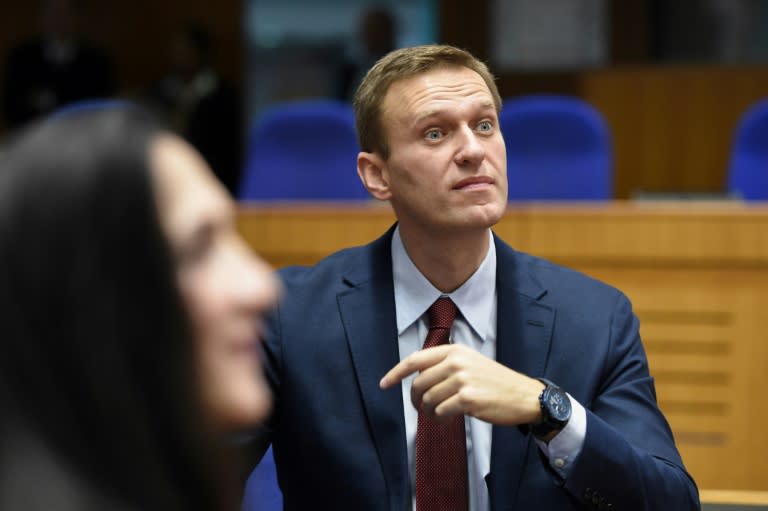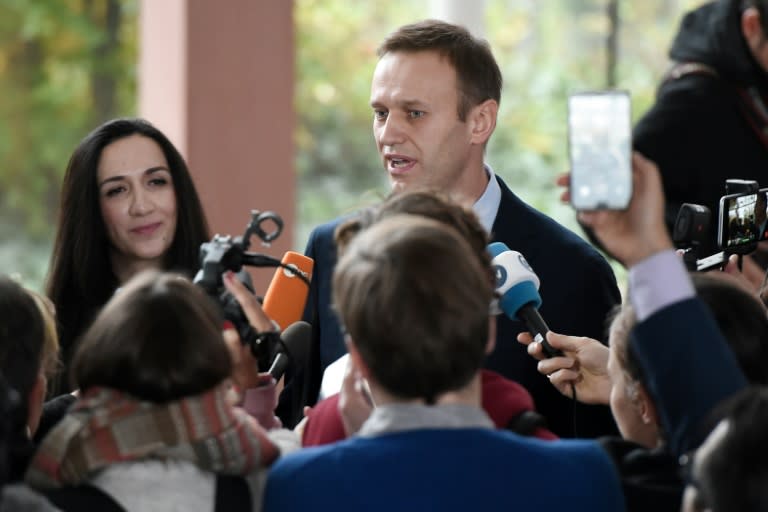Russia's arrests of Navalny aimed to 'suppress political pluralism': European court
The European Court of Human Rights ruled Thursday that Russia's repeated arrests of opposition leader Alexei Navalny were politically motivated and violated his rights. Focussing on two of the arrests, the Strasbourg-based court held that they "had actually aimed at suppressing political pluralism", in addition to violating his rights to liberty, freedom of assembly and a fair trial. "It is a very clear judgment," Navalny said in Strasbourg after the ruling. "The European court recognises that it was a politically motivated arrest and persecution. It was very important not just for me but for other people all over Russia who are arrested every day," he said. The court sentenced Russia to pay Navalny 50,000 euros ($56,000) in damages, as well as 1,025 euros in financial compensation and 12,653 euros for costs and expenses. "The court called on Russia to provide a legal mechanism for the authorities to take due regard of the fundamental importance of the right to peaceful assembly and show the necessary tolerance for unauthorised, peaceful gatherings," the ECHR said. Between 2012 and 2014, Navalny, an anti-corruption campaigner who has been President Vladimir Putin's most vocal critic, was arrested seven times at public gatherings. He was detained and later prosecuted for either breaching procedures for holding public events or disobeying a police order. Navalny was convicted on each occasion. He was fined five times and twice sentenced to administrative detention. - Barred from leaving Russia - He has been arrested several times since then, and released from his latest jail term last month. In February 2017, the court first condemned Russia for violating his rights to "liberty", freedom of assembly and fair trials, but rejected the accusation of "political motivations". Both Navalny and Russian authorities appealed that decision. Navalny, 42, travelled to Strasbourg on Wednesday after Russian border guards prevented him from flying out of Moscow on Tuesday for failing to pay a 2.1 million rubles ($31,000) fine connected to a 2013 conviction. Putin's approval ratings have slumped recently over an unpopular pension reform, and his ruling United Russia party has suffered setbacks in regional elections. Navalny was barred from leaving the country between 2013 and 2017, when authorities refused to issue a passport because of legal cases against him. He was eventually allowed to leave the country in May last year to seek treatment in Spain for damage to his eye after an assailant threw green dye in his face in Moscow. He was barred from running against Putin in a presidential election in March.



